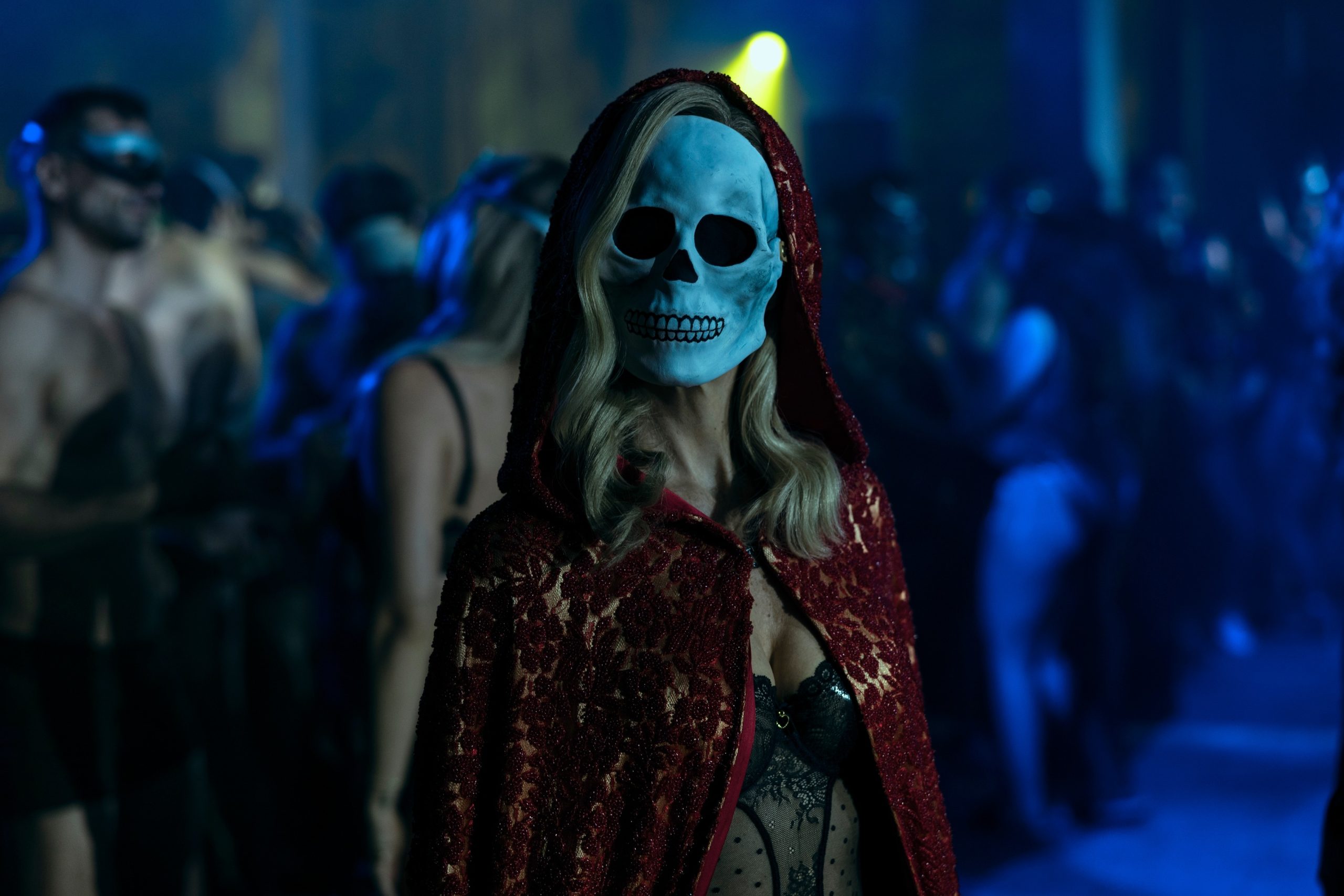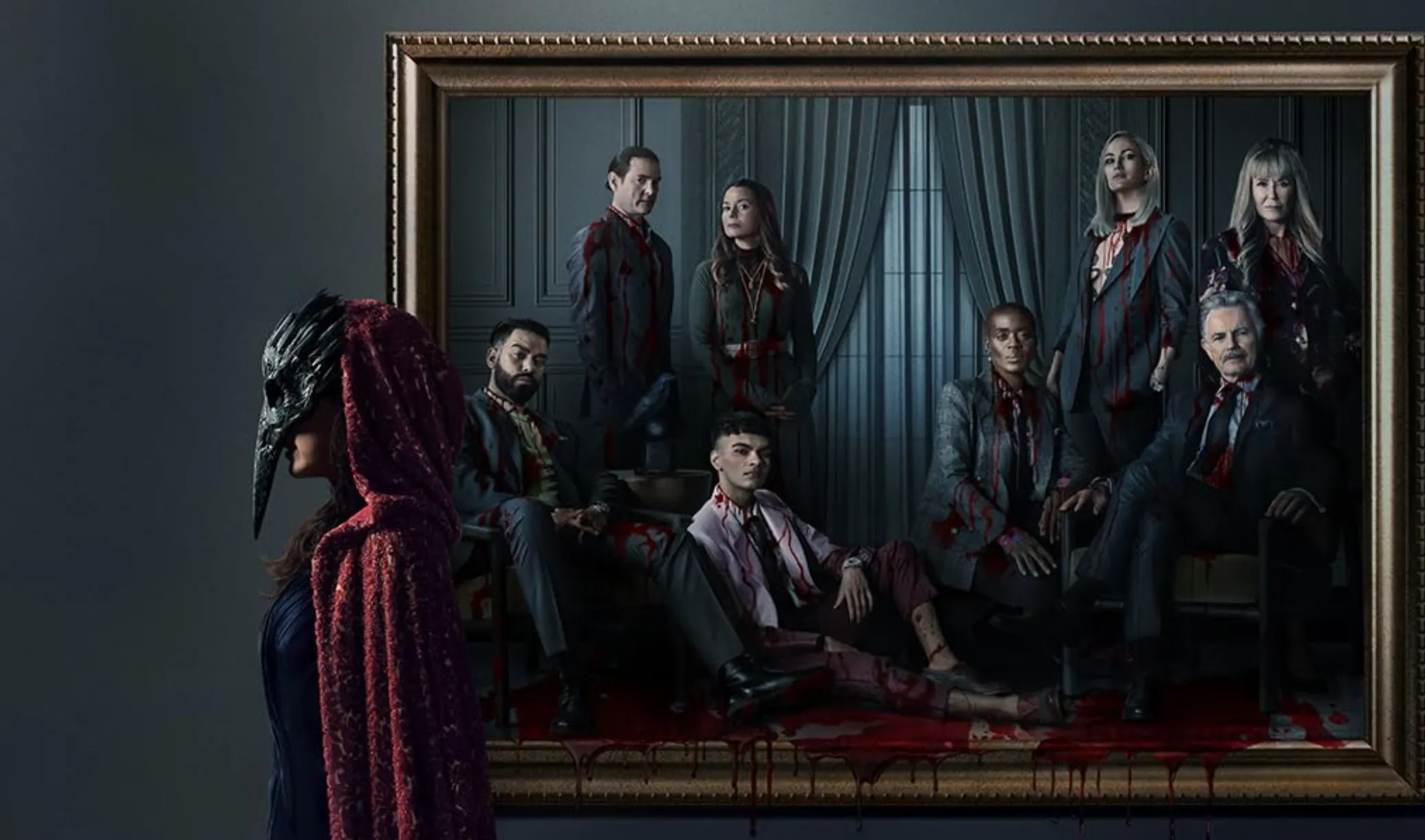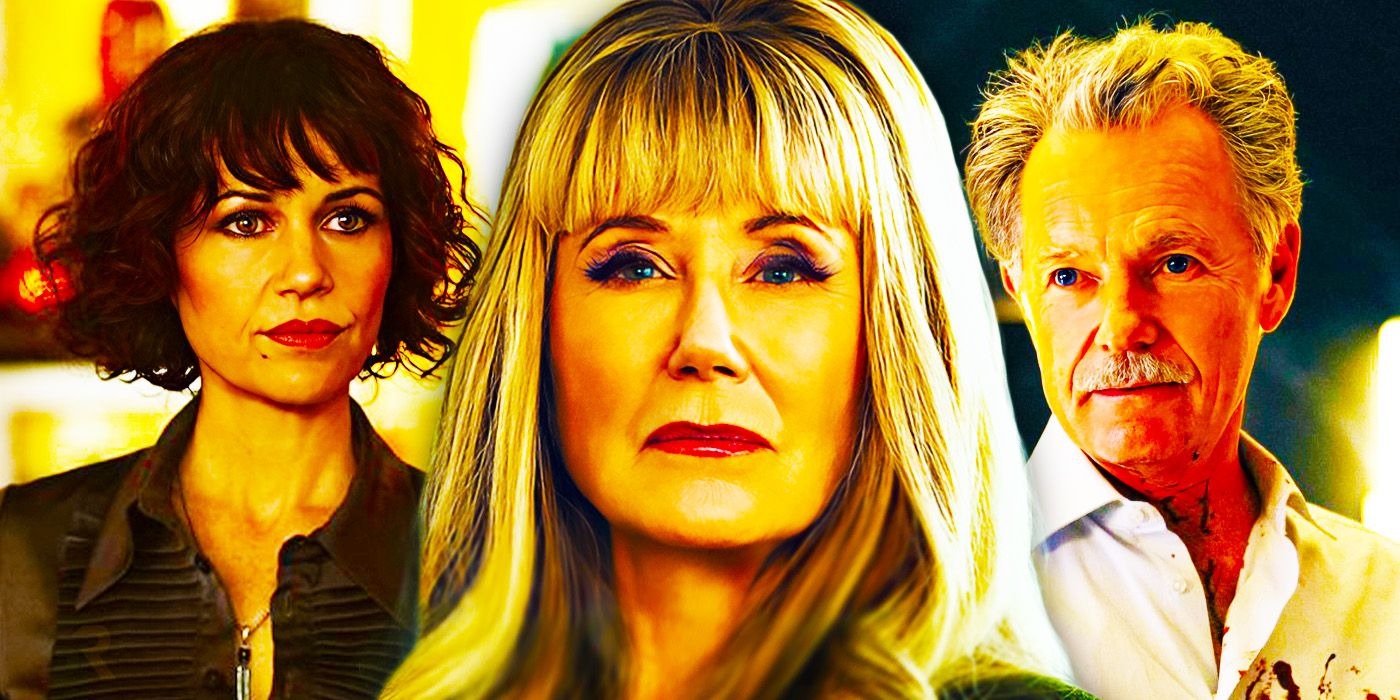A great deal of fear, bloodshed, and storytelling have played out by the time Netflix’s horror limited series from writer/director Mike Flanagan reaches its conclusion. Yet, there are still a few details that need to fall into place before the story, based on Edgar Allan Poe’s collected works, fully makes sense.
Thankfully, the closing moments tie up what’s left and offer even more clarity than expected. Rather than going for a complicated setup, the series uses a familiar and straightforward structure. In the very first episode, the stage is set.

At this point, he’s ready to tell his “confession,” whatever that might involve, to his longtime opponent, C. Auguste Dupin (Carl Lumbly), an assistant U.S. attorney who has pursued him for many years. Everything we come to know is shared through this interaction—Roderick recounts events to Dupin.
This storytelling method shows the disturbing, tragic deaths of each of his children, whether born to Annabel Lee (Katie Parker) or through other relationships, and in every case, their own poor decisions played a big part in how their lives ended.
Through several flashbacks, we also see how a younger Roderick (Zach Gilford) rose through the ranks at Fortunato. Along the way, his manipulative and emotionally detached sister Madeline (played by Mary McDonnell in the present and Willa Fitzgerald in the flashbacks) pushes him forward.
Approaching the Conclusion
Once Frederick (Henry Thomas) meets a horrible end in the second-to-last episode, it appears that the events have finally caught up with the present timeline, where Roderick is seated, sipping expensive cognac while recounting all of this to Dupin.
Still, things are not exactly as they look. The final episode goes deeper into everything that’s still unresolved, connecting every thread.
This includes Roderick’s visions and hallucinations, the banging sound that keeps echoing from the basement of his childhood home (which he insists is coming from Madeline), and why Dupin seems unbothered by it all. The episode also addresses the root cause behind everything that has been happening.
What Does the Ending of The Fall of the House of Usher Mean?
When the final scenes roll out, what’s left unresolved is neatly addressed: Arthur ends up in prison, Fortunato collapses, and Juno (Ruth Codd) steps in to lead, using the remaining money to set up a foundation aimed at helping people recover from opioid addiction.

As she delivers her final narration using Poe’s “Spirits of the Dead,” the episode closes out with Verna placing symbolic items on each Usher’s grave.
These tokens reflect the cause of their end: a mask for Prospero, an iPhone for Camille, a cat collar for Leo, a mechanical heart for Vic, a golden scarab for Tamerlane, a cocaine pouch for Frederick, a raven feather for Lenore, blue sapphires for Madeline, and a glass for Roderick—the very same glass used during their original agreement.
Poe described the raven in his poem The Raven as a figure representing “mournful and never-ending remembrance.” The man in that poem constantly remembers his lost love, Lenore, searching desperately for some form of peace.
Instead, all he hears from the raven that has entered his study is a repeated “Nevermore.” Poe’s writing paints that pain as something that will haunt the man forever. Roderick Usher might not have recognised it immediately, but his life, filled with luxury and indulgence, ended in complete emptiness.
He was left with only the weight of what he had done. His decisions led to suffering on a global scale and also touched his own family, even reaching his innocent granddaughter. Her death, brought about by one selfish choice he made long ago, leaves behind the greatest sorrow of all.



